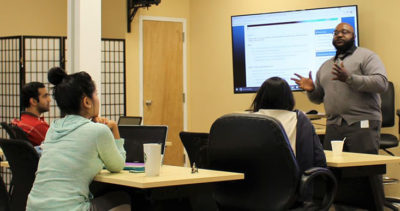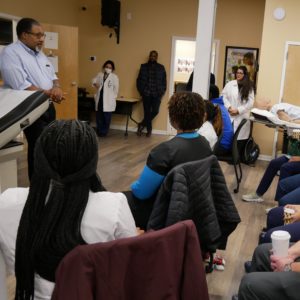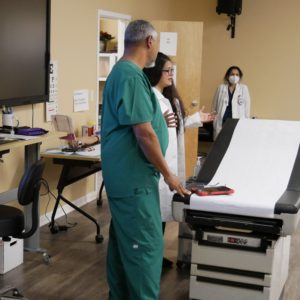Residency Match, What’s that?
By Vann Miller
Dec. 29, 2016
The dream of becoming a doctor has been yours from as early as you can recall. You’ve volunteered in your local hospital or made some pretty impressive contacts in the medical arena. Some say your scores have qualified you for the best schools around, but others discourage you saying they have tried, and warn that residency match is too challenging.
At this point, some students may realize they have no idea what residency match entails, nor what makes it challenging.
Perhaps one of the most frequent inquiries received at the American University of Integrative Sciences, School of Medicine is the question of how to get matched in residency.
Residency match is the crowning achievement for the medical student. After all the hard work, the hours-turned-days of studying and the unrelenting nights of reviewing for critical exams, the student applies all he has to becoming matched with a teaching program. That final goal is what matching is all about.
Depending on who you ask, when it comes to residency match, there are no shortcuts.
“There’s no such thing as an easy match,” said O’Dell Leverette, AUIS assistant registrar.
According to Mr. Leverette, there are other students across the country applying for the same residency at any given time.
While making Match is not easy for every student applying for a position, there are some things a medical student or pre-med students can do to improve chances of making a match, according to the manager of clinicals at AUIS.
“Students should build their Curriculum Vitae,” said Torri Perry, AUIS administrator. “By building relationships with different physicians, residency coordinators and directors, students can improve their chances of getting a match. Things like accolades, volunteer programs, associations, research programs, publications, and even hobbies can serve a vital role in a student matching to the residency of their choice.”
Experts at AUIS agree the match process can take anywhere from six to eight months depending upon the volume of applications and competiveness of the residency position.
“To match, a student must complete all of the Basic and Clinical Sciences,” Mr. Perry said. “There are minimum requirements, but once an interview (for residency) is confirmed, it’s advantageous for the student to have taken all necessary exams before approaching graduation.”
Even though Matching is an important objective for the medical student, according to the Dean of Clinical Affairs, students need to remember the real goal is more about what happens before making residency match.
“Your clerkships will allow you to meet and develop relationships with patients, their families and medical personnel,” said Dr. Don Penney, clinical affairs dean.
It is during those 80 weeks of clerkships where a student learns her core specialties as well as pursues elective study in her areas of interest.
At AUIS, students have a tool few other medical schools offer — CARL. The Clinical Activity Rotation Log, or CARL, is designed to be an innovative tool for tracking the clinical experience. CARL gives the medical student a means with which to evaluate their learning and to access built-in reference materials used in the medical licensing exam. Details about CARL can be found at https://www.auis.edu/carl-clinical.
To learn more about medical school, visit auis.edu. For information about residency match, call the AUIS Registrar at 678-825-6973.



